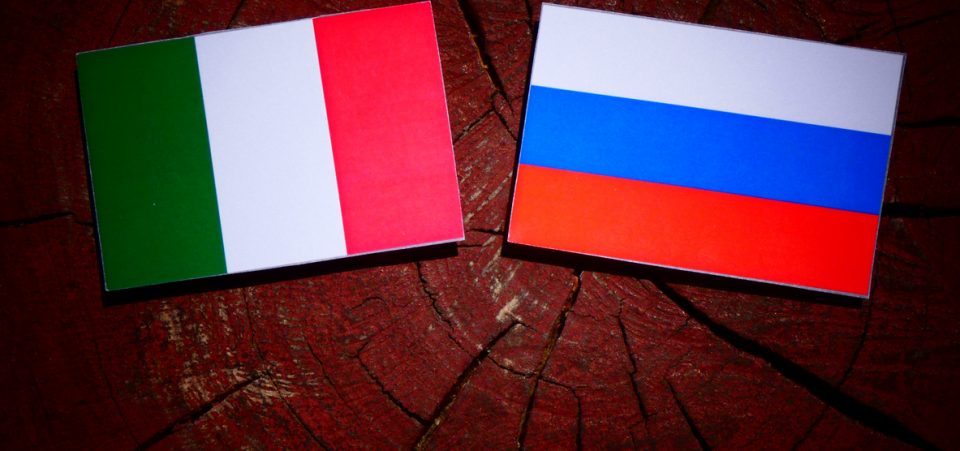Joe Biden Wants to Europe to Start Blaming Russian Meddling for Its Problems Also
Joe Biden has made some rather grandiose claims about Russia and its poisonous influence around the world in an article that was recently published in the publication that best reflects thinking at the United States Senate Committee on Foreign Relations. And Biden doesn’t pull any punches; he suggests Russian meddling–that the Russian government is “kleptocratic” (using this word at least twice), accusing President Vladimir Putin and a handful of oligarchs of having stunted the development of Russia’s budding democracy.
The article does not corroborate the ongoing ‘Russiagate’ investigation in the United States. Had Biden chosen to do that, it would have been useful, because these days, it seems as if “Russian interference” is the Democratic party’s main political position for the 2020 presidential race. (Source: “How to Stand Up to the Kremlin,” Foreign Affairs, December 6, 2017.)
Rather, Biden is trying to present Russia as a global menace. He suggests that the Kremlin wants to weaken NATO and cites various examples of interference not only in Washington, but also in Europe.
Reading the article, you’d be hard pressed to remember that Biden is one of the most “liberal” of the old school Democrats. The former vice-president brings up Senator John McCain’s talking points and ‘bam, just like Chef Emeril Lagasse, he takes it up a notch. Biden accuses Russia of interfering not only in its traditional sphere of influence (Georgia, Montenegro, and former Yugoslavia or Ukraine). He also claims Russia pulled off similar “fake news” campaigns to influence crucial European elections and referenda, namely in France and Italy.
France elected President Emanuel Macron in the spring of 2017. He faced off the right-wing populist Marine Le Pen. The election in France proceeded as if by script. At every step, the analysts’ predictions were met, including Macron’s victory. But Biden, sees a Russian conspiracy in how close Le Pen got to the Elysee Palace in Paris.
It doesn’t matter that she reflected many French citizens’ concerns and that her party had grown ever more popular for the past 20 years. So in Biden’s world, it’s not necessary to consider internal political realities to explain the way citizens vote in a democracy. If it doesn’t suit you–and in this case, if it doesn’t suit NATO–just blame Russia.
Europe Declares Biden’s Claims as ‘Fake News’ As Intelligence Agencies Deny Russian Interference
Biden sees a similar collusion to weaken the Italian government, somehow persuading voters against approving a constitutional reform in a referendum in December 2016.
Biden didn’t say that the White House openly backed the Italian government position in that referendum. The opposition would have correctly pointed that out as “American” collusion. Now, given that Italy is marching toward one of the most uncertain elections in that Republic’s history in March 2017, Biden has made sure to warn Italians about Russian interference.
Italy, as other European states, is not especially enamored with the EU sanctions against Russia over Ukraine and Crimea. Had the U.S. and NATO not put pressure on its members, it’s doubtful any EU country (with the exception of some of the Baltic States) would have cut ties to Moscow. Russia is Europe’s largest gas supplier, and it’s also a major importer of European products.
No Evidence of Russian Meddling
When Biden’s article came out and its accusations emerged, secret services went into action. It turns out that the head officers of Italian Intelligence agencies stated in no uncertain terms, within a week of Biden’s allegations, that there is no evidence of any foreign power, let alone Russia, trying to influence Italian voters in the forthcoming or in past elections. (Source: “Italian intelligence to Joe Biden: No, Russia isn’t meddling in Italy,” The Local, December 14, 2017.)
It’s a good thing that the Italian state and main privately held channels gave passing attention to the story after it first emerged. They have a good enough memory and knowledge of history to know that Italian politics has been divisive for decades. They also know that the main parties have lost strength. This has happened not because of “fake news,” but because of a long process of unclear political programs where everybody starts sounding the same.
Italian intelligence agencies promptly reported to parliament, they found zero interference in elections. They have also dismissed Biden’s claims regarding Russia. The heads of the two leading agencies reported directly to the Comitato Parlamentare di Controllo per i Servizi di Informazione e Sicurezza e per il Segreto di Stato (COPASIR), which oversees the activity of all Italian intelligence agencies.
Italian intelligence services–if you’re starting to smirk and ready to mock, remember that Italy has not seen any ISIS or Al-Qaeda attacks, unlike other EU countries–have dismissed any chance that Russian or other hackers promoted “fake news.” As for foreign interference, it’s generally been coming from the United States.
It was U.S. ambassador John Phillips, who threatened to cut off investments if the “No” vote won in the 2016 referendum. (Source: “US ambassador to Italy in firestorm over referendum remarks,” Daily Mail, September 14, 2016.)
Italian intelligence and government forces in general are keenly ware that all states try to influence the vote. Italy has countless newspapers and online publications and almost as many political parties, reflecting the complexity and variance in political views that can only come from 2,700 years of continuous history. They expect it and find nothing odd about it. Perhaps Americans should start waking up to reality as well.






